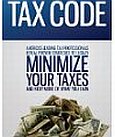Rare books are collectibles and the month of April brings capital gain, estate or gift tax considerations to those of us residing in the United States. Whether you have decided to sell off parts of your collection or bequeath it to an heir, Uncle Sam wants to know. Failing to manage valuable asset holdings properly may result in a special 28% capital-gains tax, close to double the regular long-term gains tax of other investments, which was just raised from 15% to 20% at the beginning of this year for taxpayers who fall within the new 39.6% tax bracket (singles earning over $400,000 and couples earnings over $450,000).
Good financial planning of your rare book assets starts by figuring out your tax status. There are three types of tax payers that the Internal Revenue Service recognizes: dealer, investor or collector. The IRS handles each one of these differently under its various tax codes.
A dealer is an individual or an organization that is in the business of selling inventory that was bought previously and may have been kept for a certain timeframe before offered for sale. An investor on the other hand, buys books chiefly to make a profit. The investor unlike the book dealer does not file any business activity in Schedule C – Profit or Loss from Business (sole proprietorship) or Form 1065 for larger establishments. Investors may instead deduct costs of expenses incurred in taking a risk under Section 212 of the tax code. The process requires the investor to have proof of not only market activity but also records of the value of the rare books in possession. Tracking valuations as well as keeping records of appraisal activity on a regular basis is the key to making the investor categorization rather than the collector categorization who cannot take any deductions. A collector’s expenses are considered personal under Section 262 of the code and for tax purposes the books owned are primarily for personal pleasure – a hard argument to refute given that all of us whether dealers, investors or collectors take considerable pleasure in bibliophilism.
If you have established that your tax status is either that of an investor or a collector, it is a good idea to also give some thought to longer term plans in 2013 and beyond. An alternative to selling and paying capital gains is to swap your books in a strategy often used in real estate called “like-kind exchange,” that allows you to defer the capital-gains tax. The trick is in assuring that the books being exchanged with other assets are similar, a process that may require the services of a professional agent.
Even if you have no plans to sell your rare books any time soon, collectibles included in your estate should be appraised in order to facilitate estate-tax or gift tax planning. If you are the owner of a sizable collection of rare books you ought to know the fair-market value of your holdings in order to avoid making your heirs lives more difficult when the times comes to pass them on. In some cases, it may make more sense to offer some of your holdings to charity instead. The amount given to charity is deductible for estate-tax purposes. A better way to reap the maximum tax benefit may be achieved over a lifetime series of charitable gifts. Planning such a systematic donation is obviously a lot more complicated and it will require some professional assistance.
The bottom line is that broaching tax planning can be troubling for a lot of collectors, because it involves two sensitive issues: money and departing of one’s treasured books. It is obvious that the best approach varies from one collector to the next and depending on the complexity involved, it may be appropriate to hire professional assistance. One obvious task that you must carry out annually whether you are a dealer, investor or collector is to properly track the valuation of your rare books.


{ 0 comments… add one now }